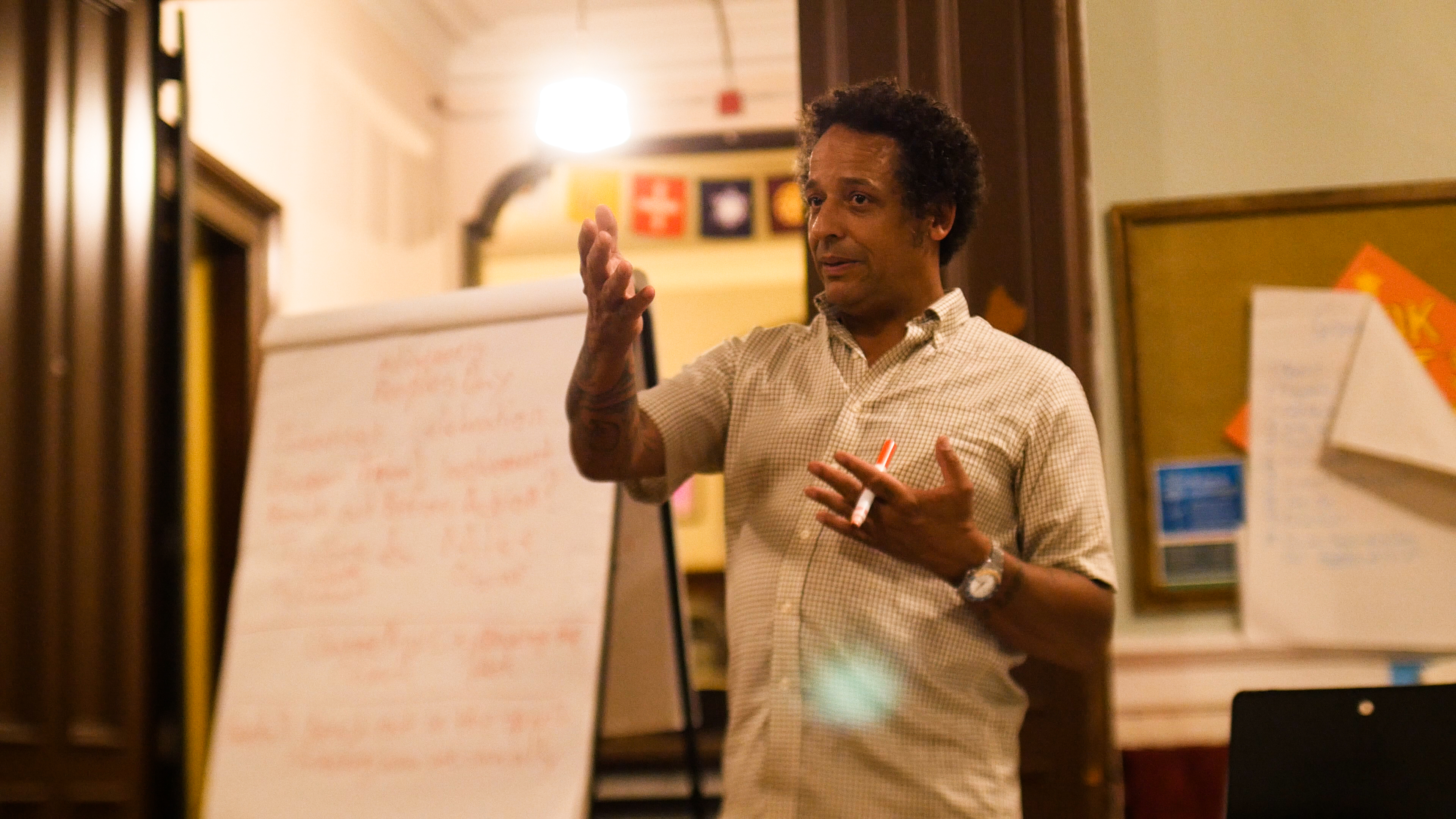RI Jobs with Justice holds second community meeting
Yesterday, Rhode Island Jobs With Justice held their second community meeting following the violence in Charlottesville, Virginia last month. About thirty people attended the meeting, compared to the three hundred people who gathered at the first meeting on August 14, the day after the events in...
Yesterday, Rhode Island Jobs With Justice held their second community meeting following the violence in Charlottesville, Virginia last month. About thirty people attended the meeting, compared to the three hundred people who gathered at the first meeting on August 14, the day after the events in Charlottesville.
Mike Araujo, Executive Director of RI Jobs With Justice, said that it’s necessary to make space for marginalized voices “because we have a large number of white people showing up to these meetings, we need to train them to not take up too much space when we’re sharing space.”
Organizers discussed the success of the Labor Day March on September 3, which attracted a crowd of more than 350 people. The march, along with the group’s other goals, like educating children on the history of racism, are all aimed at dismantling white supremacy.
 When asked about the best way to respond to racism, Araujo stressed that people need to remember historical context.
“Human beings have a hard time putting things into a longer historical perspective. It’s hard for us to say this [tragedy] isn’t a one-off thing. A lot of times, we try to think of racism as individual illnesses, and not as a deeper problem.”
He said that the violence in Charlottesville was a direct product of several systems – like housing, education, and prison systems – designed to uphold white supremacy.
At the meeting, the group also planned for the upcoming March for Racial Justice, which will be held this Sunday at India Point Park. The march is centered around solidarity, according to Araujo. “It’s not necessarily a targeted march, but a way to bring like-minded folks together, and get them to start making connections,” he said.
Ria Mo, the primary organizer of the March for Racial Justice, is also expected to bring up specific policy goals, such as bail and housing reform.
Over 800 participants are expected to show up for the March for Racial Justice on Sunday.
When asked about the best way to respond to racism, Araujo stressed that people need to remember historical context.
“Human beings have a hard time putting things into a longer historical perspective. It’s hard for us to say this [tragedy] isn’t a one-off thing. A lot of times, we try to think of racism as individual illnesses, and not as a deeper problem.”
He said that the violence in Charlottesville was a direct product of several systems – like housing, education, and prison systems – designed to uphold white supremacy.
At the meeting, the group also planned for the upcoming March for Racial Justice, which will be held this Sunday at India Point Park. The march is centered around solidarity, according to Araujo. “It’s not necessarily a targeted march, but a way to bring like-minded folks together, and get them to start making connections,” he said.
Ria Mo, the primary organizer of the March for Racial Justice, is also expected to bring up specific policy goals, such as bail and housing reform.
Over 800 participants are expected to show up for the March for Racial Justice on Sunday.

Mike Araujo addresses community members at RI Jobs With Justice’s second community meeting. Photo by Selene Means.

